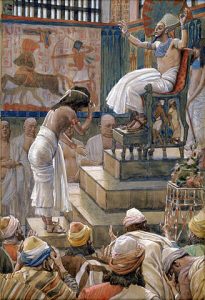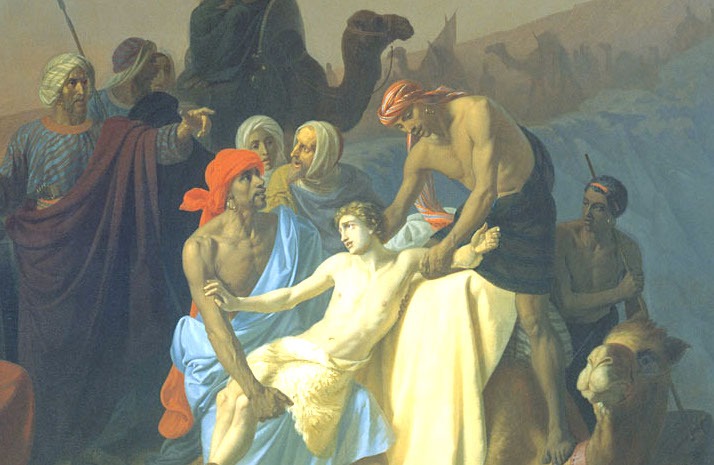by Lois Tverberg
Joseph said to Pharaoh’s court, My father made me swear an oath and said, “I am about to die; bury me in the tomb I dug for myself in the land of Canaan.” Now let me go up and bury my father; then I will return.’ So Joseph went up to bury his father. All Pharaoh’s officials accompanied him—the dignitaries of his court and all the dignitaries of Egypt—besides all the members of Joseph’s household and his brothers and those belonging to his father’s household. Chariots and horsemen also went up with him. (Genesis 50:4-9)
The redemption of Israel is a foreshadowing of the redemption of the whole world through Christ. Subtle motifs in the story hint that Israel is the representative of the world. Their enslavement to the false gods of the Egyptians is a picture of all of our enslavement to the false gods of this world, from which only Christ can free us.
When and how did the family of Israel become enslaved? Obviously, the first member of the family who was enslaved was Joseph, when his brothers deliberately sold him into slavery. Four hundred years later they were all enslaved by the Egyptians.
 An interesting thing to note was that it seems that even though Joseph had great power in Egypt, he was still a slave even then and not free to leave. In the passage above, when Joseph wanted to travel to Canaan to bury his father, he had to ask permission. Scholars believe that the officials, chariots and horsemen who went with him were there partly to honor Jacob, but also to guard Joseph to make sure that he returned to Egypt.
An interesting thing to note was that it seems that even though Joseph had great power in Egypt, he was still a slave even then and not free to leave. In the passage above, when Joseph wanted to travel to Canaan to bury his father, he had to ask permission. Scholars believe that the officials, chariots and horsemen who went with him were there partly to honor Jacob, but also to guard Joseph to make sure that he returned to Egypt.
If that is true, it yields an interesting insight – that from the moment that Joseph’s brothers sold him into slavery, someone from their family was trapped in bondage, unable to be released until God himself intervened 400 years later. True, God brought them down there to save their lives during the famine. But had they not sold Joseph into slavery, they wouldn’t have had the tie that brought them all down to Egypt, to the “house of bondage” as the Bible calls it.
Likewise, with the first sin, Adam and Eve were trapped in bondage, and the slavery to sin transferred itself to all their children, including us. Only through redemption in Christ can we be set free.





